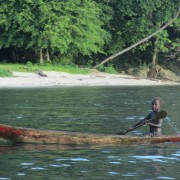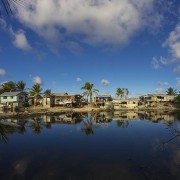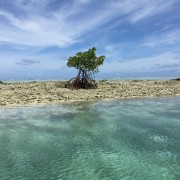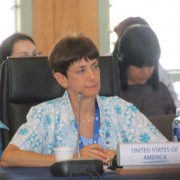
To reduce the vulnerability of food security to the impacts of climate change, USAID and GIZ work with local communities to help establish nurseries that will supply tree species needed to implement forestry and agroforestry activities.

Through Coastal Community Adaptation Project (C-CAP), USAID supports local-level climate change interventions in nine Pacific Island countries:, Fiji, Kiribati, Nauru, Papua New Guinea (PNG), Samoa, Solomon Islands, Tonga, Tuvalu, and Vanuatu. In 77 communities in these countries, USAID is working to increase local knowledge and adaptive capacity through community-based training.

Pacific Island countries are highly vulnerable to the negative effects of climate change. More than 8.5 million people across the region depend for their livelihood primarily on tourism, fisheries, forestry and agriculture, all of which are highly sensitive to rising sea levels, changing ocean temperatures and acidity, and shifting rainfall and storm patterns. Civil society organizations (CSOs), which play a critical role in the region’s social and economic development, are often hindered by a lack of resources and managerial capacity from responding to climate change challenges.

A new U.S. Government initiative was launched today to help communities in the Pacific Islands region address the negative effects of climate change.







Comment
Make a general inquiry or suggest an improvement.